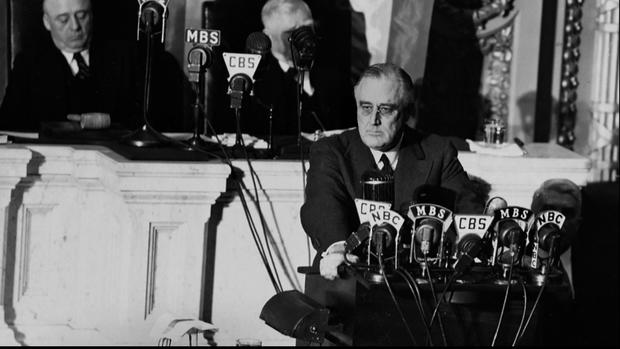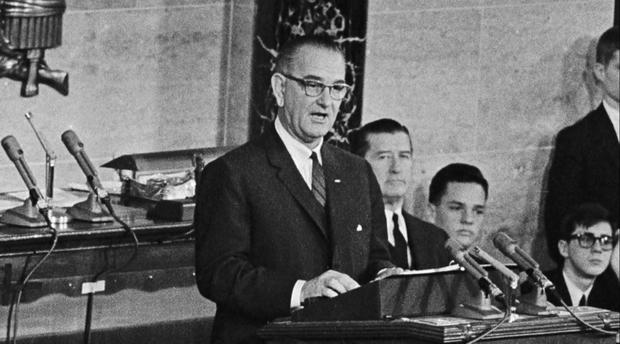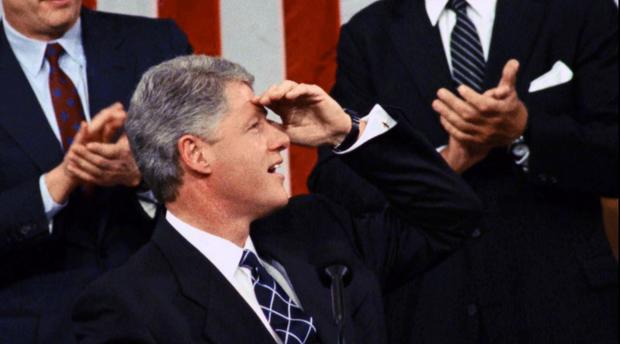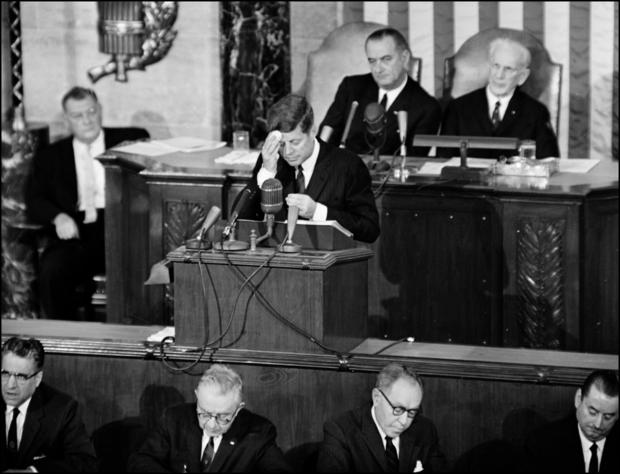Memorable lines from previous State of the Union addresses
Over the past two and a quarter centuries, presidents have used hundreds of thousands of words to report on the state of the union -- most of the words quickly forgotten -- but there have been some memorable lines and defining moments.
Long before the annual message became a major television event, James Monroe used it to warn European powers to stay out of the Americas, in what became known as the Monroe doctrine.
James K. Polk confirmed the discovery of gold in California -- helping set off the gold rush of 1849. And Abraham Lincoln laid out the stakes in the Civil War: "We shall nobly save, or meanly lose, the last best hope of earth."
Franklin Roosevelt's 1941 address became known as the "Four Freedoms" speech.
"We look forward to a world founded upon four essential human freedoms," said President Roosevelt.
One of them: freedom from want. In 1964, Lyndon Johnson said it was time to fight for that freedom.
"This administration, here and now, declares unconditional war on poverty in America," said President Johnson.
In 1974, Richard Nixon was fighting a losing battle to keep his job. A year later, Nixon was out and Gerald Ford was in, with a bleak report.
"I must say to you that the state of the union is not good," said President Ford.
In the first state of the union after 9-11, George W. Bush coined a phrase for Iran, Iraq and North Korea.
"States like these and their terrorist allies constitute an axis of evil," said President Bush.
Bill Clinton's 1994 address got off to a shaky start.
"I'm not at all sure what speech is in the teleprompter tonight," he said, drawing laughs from the chamber.
And Ronald Reagan believed it best to start with a joke.
"President Washington began this tradition in 1790 after reminding the nation that the destiny of self-government and the 'preservation of the sacred fire of liberty' is 'finally staked on the experiment entrusted to the hands of the American people.'" said President Reagan. "For our friends in the press, who place a high premium on accuracy, let me say: I did not actually hear George Washington say that.



